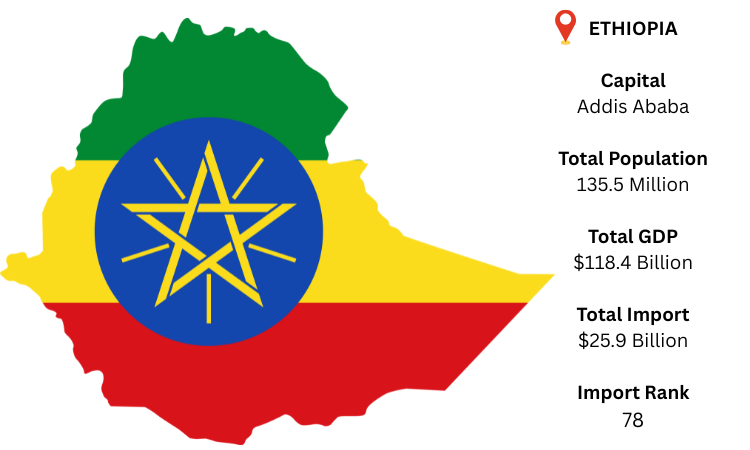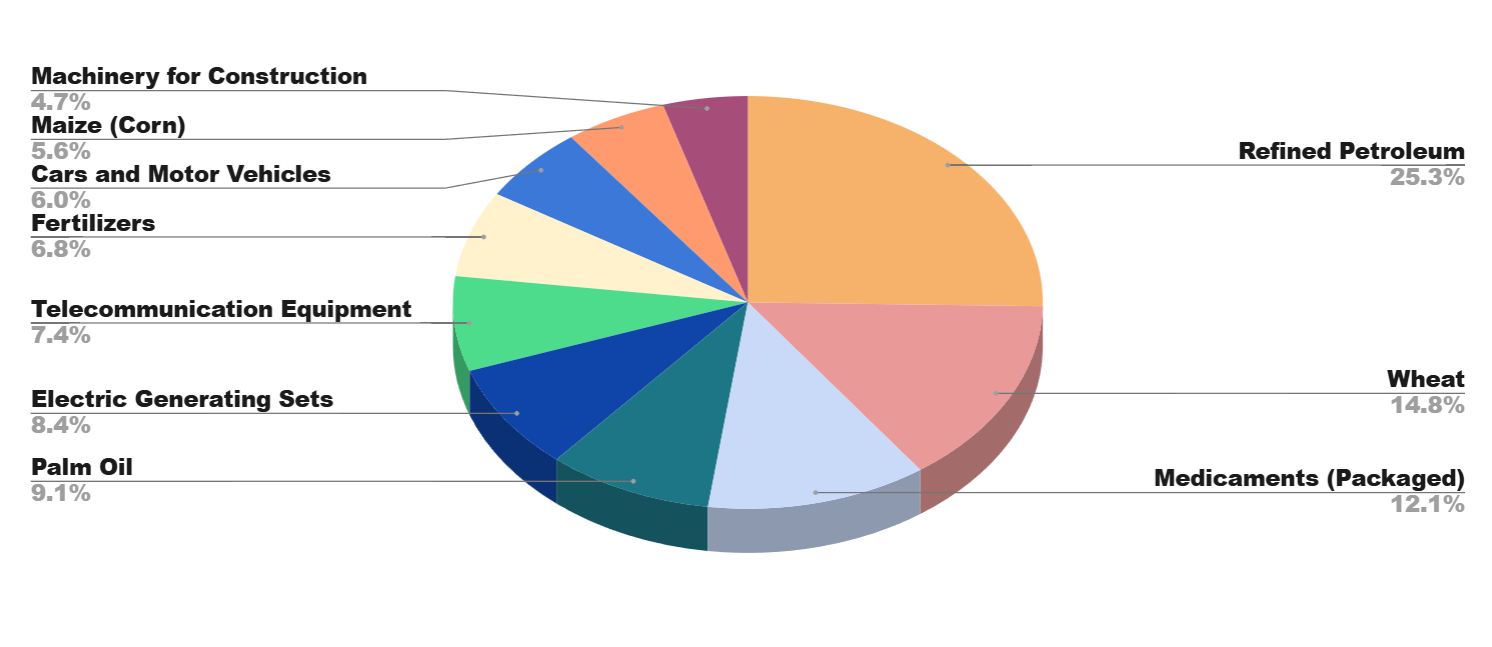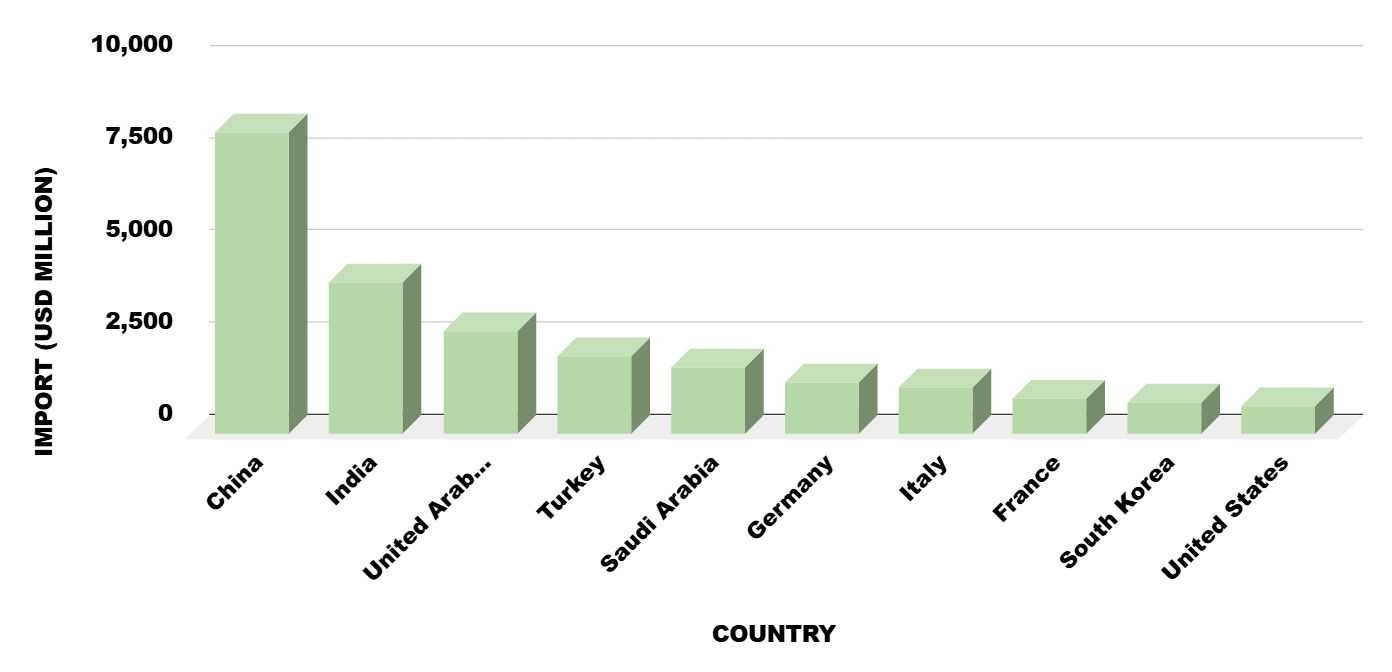Ethiopia is a landlocked country situated in the Horn of Africa, bordered by Eritrea, Djibouti, Somalia, Kenya, South Sudan, and Sudan. Addis Ababa is both its capital and largest city, serving as the country's political and economic center. In 2024, Ethiopia's GDP is estimated at USD 118.4 billion. The nation ranks as the 78th-largest importer in the world. According to the Ethiopia import data, China is the largest exporter to Ethiopia. Ethiopia's total import value in 2024 is projected to reach around USD 25.9 billion, showcasing its growing demand for machinery, fuel, pharmaceuticals, and food items. The most important product of Ethiopia is refined petroleum, critical to fueling its transportation and power sectors.
Ethiopia's population and continuous infrastructural improvements have made it a major regional economy despite its landlocked status. Modernizing the country's roads, railroads, and energy sectors has been greatly aided by strategic alliances, especially with China, India, and Gulf countries. As per Ethiopia customs data, Ethiopia keeps growing its commerce with other countries to combat poverty and promote economic expansion.



